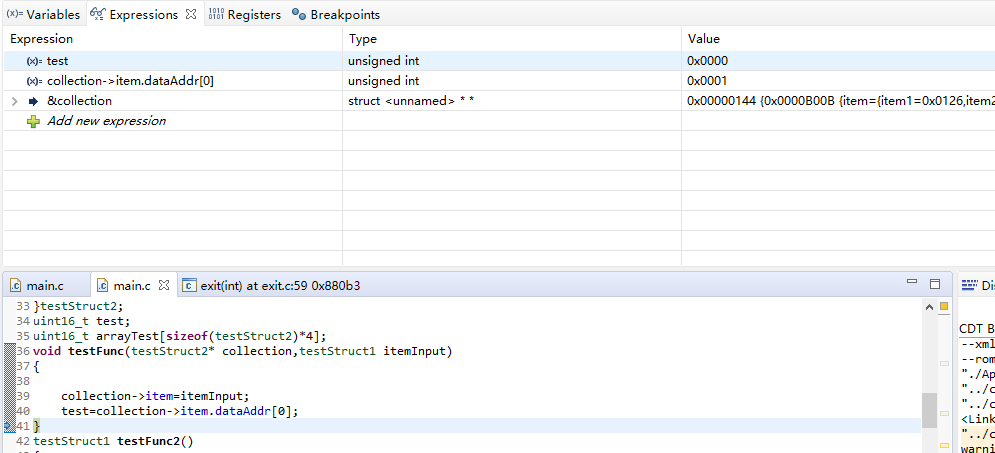Tool/software: Code Composer Studio
When running the code attached in the file below with CCS 8.3.1 and chip TMS320F28377DPTPQ.
After calling the function "testFunc" in line 66,the variable "test" should be set to the value of "collection->item.dataAddr[0]" after executed line 40.
But an unexpected behavior happened after line 40, the "test" was set to 0,but the value of "collection->item.dataAddr[0]" should be 1.
I think the problem is due to the function "testFunc2", the return value of testFunc is a struct, and when assign the return value to "collection->item" in line 39,the point value "dataAddr" in the struct testStruct1 was ignored in the assignment.
Can you tell me the reason why the problem happen and how to fix the problem?


